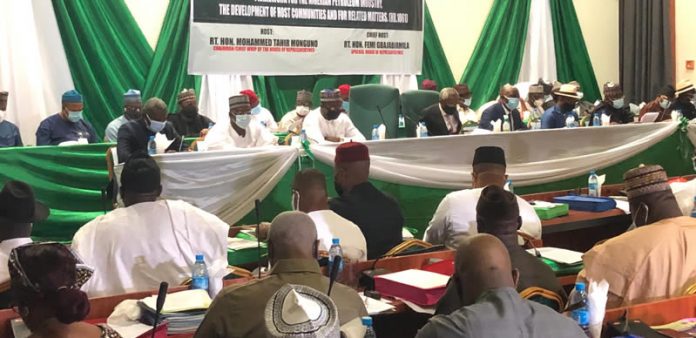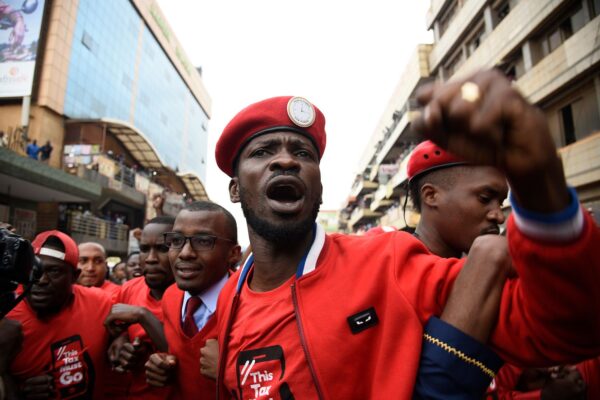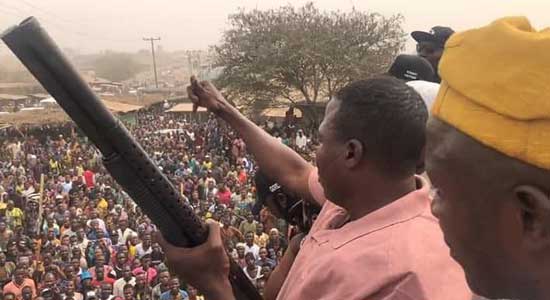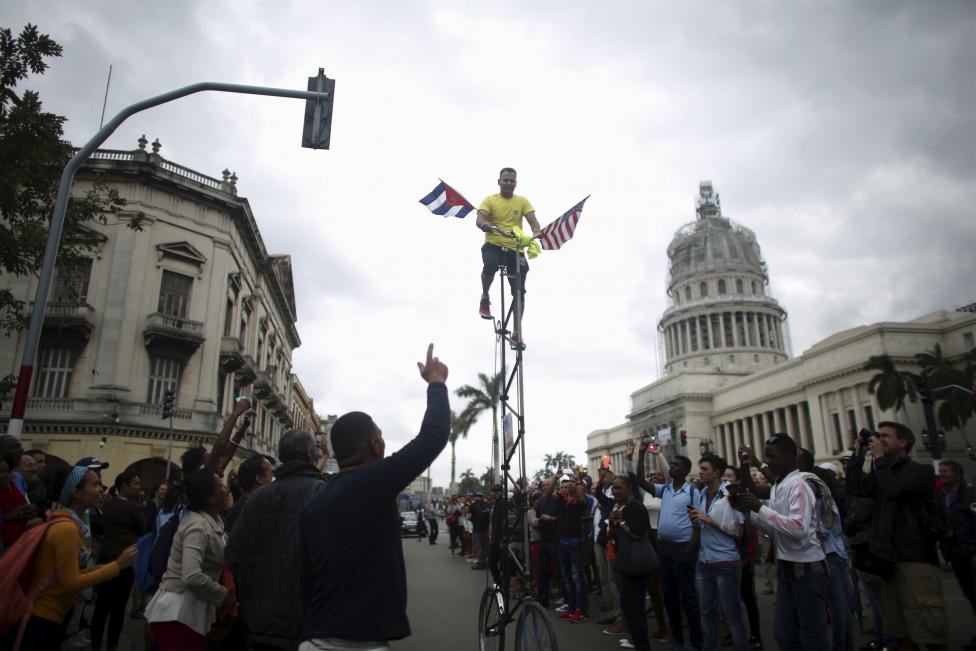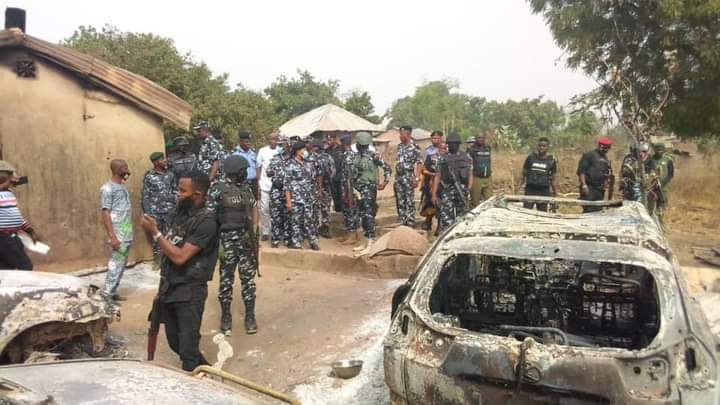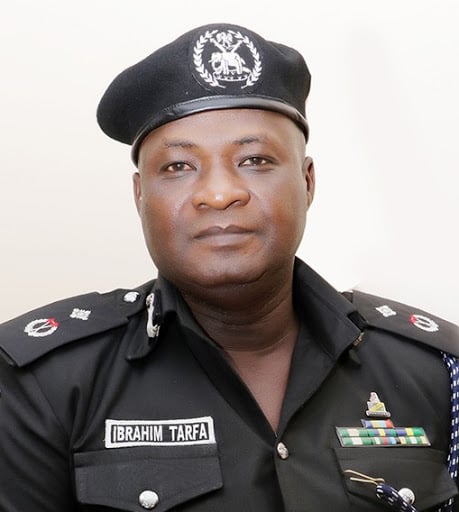If it wasn’t too sad to even contemplate, the fight that broke out amongst host communities of Nigeria’s oil and gas producing areas at the House of Representatives last week would be very hilarious.
In a country where literarily, every other ethnic nationality is angry with the Fulani and itinerant herdsmen, who have become the latest easily identifiable members of the group, it is almost unthinkable that people from the same part of the country would openly engage in fisticuffs. Most especially at an event which had the complement of television cameras.
It is more confounding when you consider that the interests these people represent are expected to be homogenous and mutually beneficial. That is given arguments by those who think the only way out of Nigeria’s myriad of challenges is to take the country to the slaughter slab and slice italong zonal lines.
For more than six decades, people of the oil-producing areas of the country currently made up of nine states have borne the brunt of the massive exploration from their zones.
Advertisement
Rabid environmental degradation, with the attendant evils of pollution, stifling of economic activities, and years of failure of the Nigerian state to appropriate resources commensurate to what is generated from these exploration activities have depreciated lives and living in these areas.
Of course, consequent upon this, a pervasive spirit for agitation, initially across board and an eventual specialism into youth restiveness and general discontent, which has threatened to cripple Nigeria’s economy emerged, compelling a tokenistic sense of fairness post-1999. But then, every Nigerian with a sense of fairness for others and patriotism for the country, agrees that the oil and gas sector needs sustainable reforms, a part of which is that host communities must get a better deal.
Enter the Petroleum Industry Bill, the proposal for reform that has been on the table for the past 12 years. It is needless going into the politics that has stopped successive administrations from making this bill good but suffice it to say that this administration-(executive and legislative arms), seems to have realised that Nigeria will continue to shortchange itself if this bill does not get enacted. And so, it is safe to suggest that there is a political will to pass the PIB, currently.
Advertisement
Senate President Ahmed Lawan, whose legislature is comfortably in bed with the executive, gave the ultimate assurance while declaring open the public hearing on the bill. Lawan was quoted as saying: “The mere knowledge that the nation’s oil industry is still being governed by laws enacted more than 50 years ago is ludicrous and extremely disappointing. As legislators, we will strive to deliver a bill that will enhance the growth of our oil and gas industry, modernise our fiscal system and enhance competitiveness, while creating harmony for all stakeholders. This is a promise we have made and that we shall achieve.”
So, when host communities, which have suffered all sorts of deprivations, including the externally and internally-induced ones are invited to discuss issues that would alleviate, if not terminate their inequitable lot, one would expect not just a level of decorum but also a large measure of cohesion. Optics from the public hearing, where the host communities were more or less discussing with the world, showed everything but that.
Take the scuffle that made the news from the event, for an example. A man, fairly elderly and dressed in traditional regalia, (the one capable of intimating the uninitiated) stood up to speak. His authority was challenged by another man, who, apparently failed to impress the former with his request to not speak on behalf of the communities, pounced on him and beat him until he was on the floor! Now, that was a clear shock for an event meant to discuss the deficiencies and propose provisions to improve the outlook of this all-important bill.
To start with, the fight is a devaluation of Nigeria’s culture. Even though such incidents are a usual occurrence on the premises of the National Assembly, given that legislators have themselves found reasons to exchange blows on several occasions, leaders of communities present at this event should have exhibited a lot more seriousness than the violence that was unleashed on that day.
Advertisement
What is more is that the aggressor of the day was said to have been a far younger man than the aggressed. Apart from the disregard for the deference to age, common to almost every tradition in this country, it is a testament to the poor emotional intelligence of some of the people who claim to be leaders of ethnic groups in Nigeria. And this goes to the root of the quality of public pronouncements that they make on behalf of their communities and ethnic groups.
But the issue with the PIB public hearing is deeper. Feelers from that meeting indicated that there were so many umbrella groups of host communities, you would wonder if it was ever possible for people to unite! And it is for this reason that you have disagreements that led to the type of fight we saw last week.
The host communities had so much to say! They were unhappy that each chamber of the National Assembly gave just six hours, half of which was reportedly taken by oil companies, to discussions. They quarrelled that this left limited time for host communities and civil society organisations to speak. This is in spite of the fact that many provisions, including something as fundamental as the definition of “host community” tilt against the people. They complained about the provision, which compels unarmed communities to protect oil installations from armed attack and forfeit their entitlements in the event of attacks as well as the vexed issue of 10 per cent equity shareholding.
There were these and many more points to make but the host communities could not aggregate their positions and put the same in the mouths of one or two umbrella groups. This would have been done with a couple of pre-public hearing meetings where these positions would have been harmonised before the National Assembly gathering. This would have communicated a sense of single-minded dedication, which is itself not devoid of provincialism.
Advertisement
Such cohesion is however unknown here of the variety of interests and egocentricity that usually disallows consensus building even at the community level. Unfortunately, at the end of the day, everyone loses out. So, if Nigeria finally splits and these oil-producing communities find themselves in one country, would the gods of oil production suddenly grant them grace for unity? Not likely. The scramble to partition resources would most likely grow more ferocious.
Last week’s event shows that breaking up Nigeria cannot be the silver bullet to the country’s problems. None of our groups and communities is completely homogeneous and these differences would only make a micro-Nigeria of every little group. This will be the situation until some other factors like the selfishness of leaders are dealt with.
Advertisement
What every Nigerian of goodwill must realise is that the “To your tents oh Israel” idea will not make an El Dorado out of any part of Nigeria. Social problems are better resolved through continuous discussions propelled by mutual respect and a readjustment of otherwise absolute dispositions and inclinations of groups, rather than separation.
What Nigerians should continue to demand themselves is a selfless temperament that gives consideration to the other person. And for leaders, a commitment to social justice, fairness and equality. The determination to build an egalitarian society, where no one is made to feel inferior, like an outsider. Nigerians must work towards a society where people do not give birth to children without parenting them; where people do not become leaders until they understand the import of service; where the institutions of nationalisation such as religious groups, political parties, represent national, rather than sectional interests. A united society, which respects people’s humanity and does not worship money, is what Nigeria should become rather than splinters of impending failure as is looming.
Advertisement
Adedokun tweets @niranadedokun
Advertisement
Views expressed by contributors are strictly personal and not of TheCable.
Add a comment

